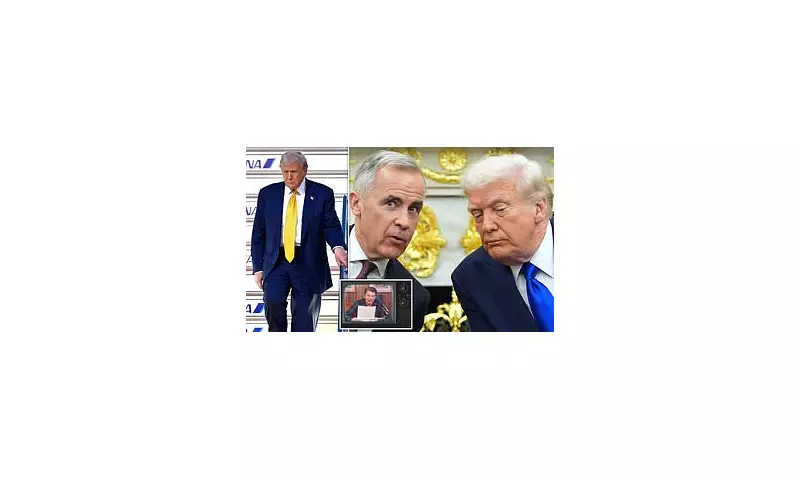
In a dramatic intervention that has sent shockwaves through financial circles, former Bank of England Governor Mark Carney has delivered a stark warning about the potential economic consequences of Donald Trump's proposed tariffs on Canadian goods.
The Canadian-born economist and central banker, who served as Governor from 2013 to 2020, expressed grave concerns about how these protectionist measures could destabilise the crucial trade relationship between the United States and its northern neighbour.
Economic Stability Under Threat
Carney's comments come amid growing anxiety in international markets about what a potential second Trump presidency could mean for global trade. The former President has repeatedly threatened to impose significant tariffs on Canadian exports if he returns to the White House.
"The implications for both nations' economies could be severe," Carney emphasised during his remarks. "We're looking at potential disruptions that could affect everything from automotive manufacturing to agricultural exports."
Background of Bilateral Tensions
The US-Canada trade relationship, long considered one of the world's strongest economic partnerships, has faced periodic strain in recent years. Trump's previous administration renegotiated the North American Free Trade Agreement, replacing it with the US-Mexico-Canada Agreement (USMCA).
However, Carney suggested that new tariff threats represent a more fundamental challenge to the principles of free trade that have underpinned North American economic cooperation for decades.
Broader Implications for Global Markets
Financial experts are watching the situation closely, concerned that tensions between Washington and Ottawa could have ripple effects across global markets. As one of the world's most experienced central bankers, Carney's warning carries significant weight in international financial circles.
"When someone of Carney's stature speaks about trade risks, markets listen," noted one London-based analyst. "His unique perspective, having led both the Bank of Canada and the Bank of England, gives him unparalleled insight into transatlantic economic dynamics."
The situation remains fluid, with business leaders on both sides of the border hoping for a resolution that preserves the vital economic ties between the two nations.





